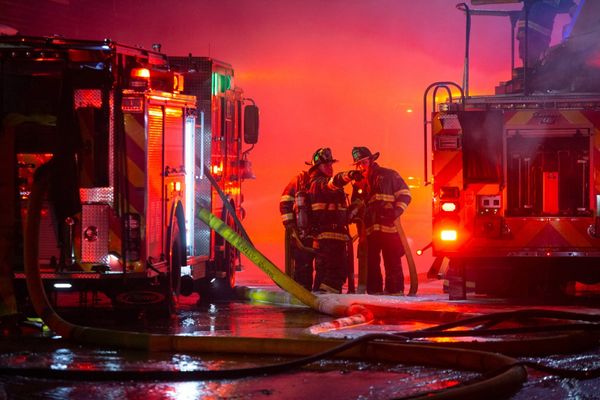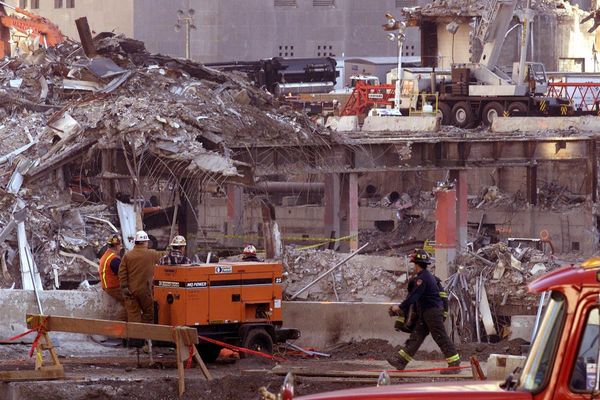
Queensland authorities abandoned their own contingency plans to protect vulnerable disability housing residents in the event of a Covid outbreak, instead telling accommodation providers to manage positive cases themselves and just “do what you reasonably can”.
Emails obtained by Guardian Australia reveal the extent to which Queensland’s health system planning quickly became overburdened by the Omicron outbreak.
Last year, the Queensland government developed a “rapid response” plan for any potential Covid outbreaks in disability residential services, which recognised “critical risks” for residents and the need to isolate any suspected case in consultation with public health officials.
But on 26 January, when a disability housing provider contacted the Queensland Metro South public health unit seeking urgent assistance to relocate a positive Covid case who could not effectively isolate at the facility, they were told they would have to manage alone.
“Unfortunately, the rise of Omicron means that the opportunities for ideal responses have passed, and we must all just do the best we can,” the response from a public health physician read.
“I appreciate that as an organisation, you have been aware of the risk of Covid spreading within your facility, and have raised your concerns with various government bodies.
“As discussed, future cases that arise will need to be managed onsite. There is limited capacity for Covid-19 cases in acute hospitals, and admission is based on clinical need. Isolation hotels are unable to accommodate people with complex needs, limiting their effectiveness for your client group.
“The best advice I can provide is to do what you reasonably can.”
The government’s original rapid response plan said it was “identified as being necessary given the congregate living arrangements and co-morbidities identified as being critical risks for residents living in residential services”. It identified the need to work alongside state public health units to implement infection control.
The formal advice changed on 28 January, noting that where isolation was not possible facilities should “do what is within your capacity to minimise the risk of transmission”.
Currently, when cases are detected, accommodation providers say phone calls to state public health units often go unanswered. It can take several days before they even receive an email response.
The Supported Accommodation Providers Association represents the “unfunded” disability accommodation sector, which plugs a gap in the system for people, mostly with psychosocial disabilities or complex mental health conditions, who would likely otherwise end up homeless. Nathan Johnson, a spokesperson for Sapa, said in many cases they were homes “of last resort”.
In many of the facilities, there is limited ability to isolate. Residents share bedrooms, bathrooms and common areas. Those who smoke often share cigarettes.
‘Falling through the cracks’
Johnson said the sector was “in crisis” and that facilities have been unable to obtain enough rapid antigen tests or protective equipment.
A staff member at one facility said they had attempted, unsuccessfully, to find alternate accommodation for six separate Covid cases. Each time the resident was rejected for admission to a government-run medi-hotel.
“Effectively our residents are falling through the cracks,” he said. “They’re not aged care, they’re not classed as homeless, so they don’t meet the criteria (to go into a medi-hotel).
“The most upsetting thing is seeing how other industries are being catered to and we can’t get our emails answered. None of the things we were told would get done have come to fruition.”
Another staff member at a disability housing complex told Guardian Australia they had been attempting to routinely test residents for Covid three times a week.
She said the Queensland government’s Metro North public health unit advised her to stop screening and only test residents or staff who were symptomatic.
“Given our cohort, it’s difficult to ascertain whether they are symptomatic,” the staff member said.
Paige Armstrong, the chief executive of the Queenslanders with Disability Network, said lives were at risk because governments had given “a total lack of priority” to the needs of people with disabilities.
Armstrong said people with disabilities and their families should be formally recognised as a priority cohort – similar to the aged care sector – to help access supplies, services, and support.
Having tried unsuccessfully to elevate concerns for more than two weeks, Johnson said he had a “productive” meeting on Tuesday with staff of Leeanne Enoch, the state communities and housing minister.
The Queensland health minister, Yvette D’ath, has previously acknowledged that Covid outbreaks had placed pressure on the health system on top of existing demand.
Queensland Health said in a statement: “Queenslanders can be assured everyone who attends a Queensland Health facility will be treated, and we will prioritise those requiring the most urgent care first.
“We have been responding to the pandemic for nearly two years and, thanks to good planning, our public health system is sufficiently resourced to manage current demand despite the pressure Covid-19 is placing on our hospitals.
“We will continue to monitor our response to Covid-19 and adjust accordingly to ensure we can continue to deliver effective healthcare to Queenslanders.”







